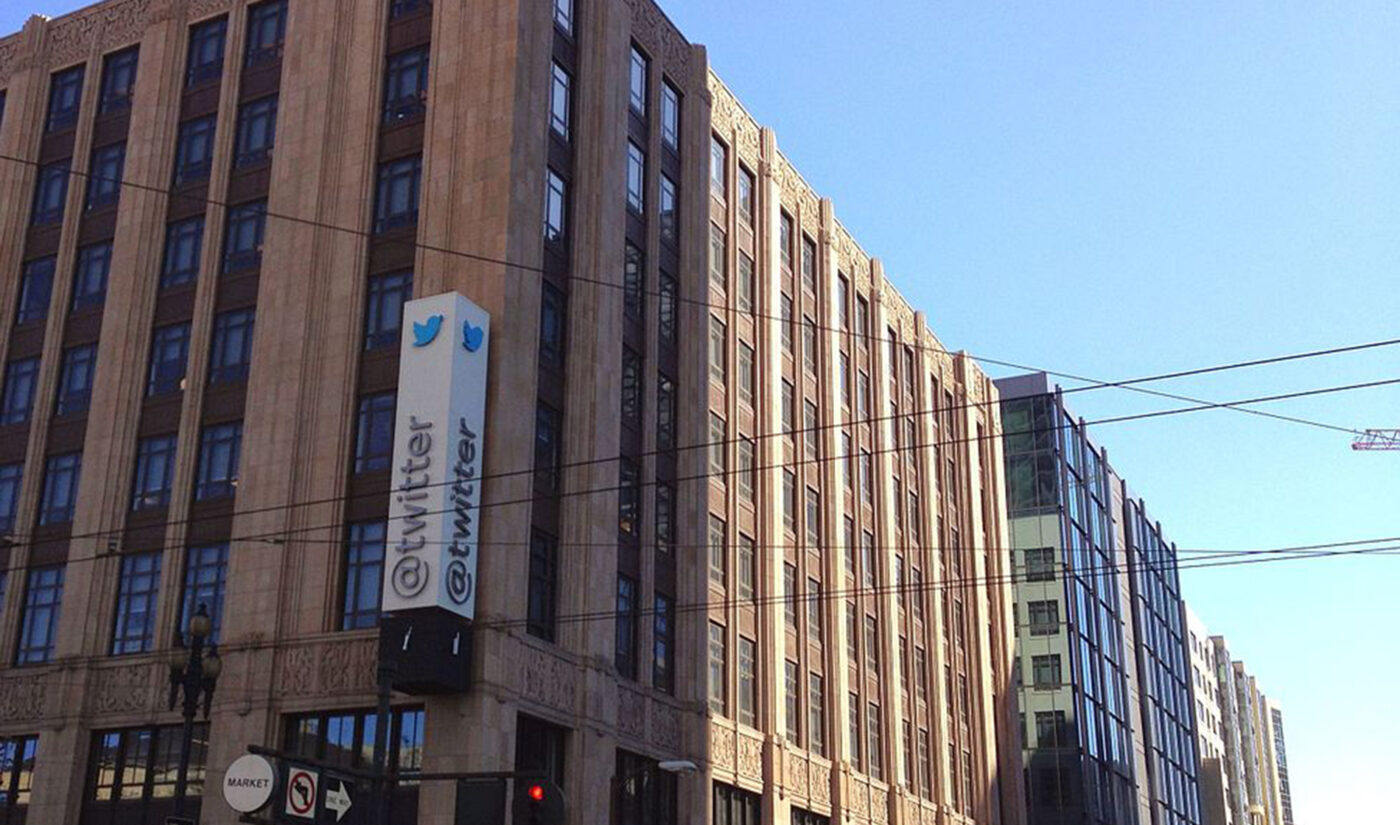Well, it only took six years of mediocrity and underperformance, but the Serial Self-Starver has finally set free the Little Bird he helped create, giving Twitter a chance to become something more than meh, maybe.
Jack Dorsey, who cofounded and was Twitter’s first CEO, then came back seven years after being ousted in 2008, is leaving again, this time, please God, for good. It might be the best chance Twitter has had in a decade to truly thrive and become whatever it needs to become.
It’s clear from the past six years that Dorsey has not been able to put Twitter on a compelling path to broader success with audiences, creators, advertisers, or investors. Maybe the new guys can change that.

Subscribe for daily Tubefilter Top Stories
Then again, the company replaced Dorsey as CEO and board chairman with two insiders who seem unlikely candidates to rock the boat, especially Parag Agrawal, who has been with the company for a decade and its chief technology officer since 2017.
“I think the fact that they hired the CTO to become the CEO tells you everything need to know,” Truist Securities managing director Youssef Squali said on CNBC after news of Dorsey’s resignation hit. “It’s all about the product.”
Ah, yes, the product.
As some analysts pointed out, what kind of product do you have when you lose half a billion dollars in the same year that your social media platform becomes the de facto communications strategy of the Leader of the Free World?
Back in 2016, that’s what Twitter did, even as Donald Trump collected tens of millions of followers on the platform and turned the Little Bird into a must-watch for politicos, journalists, and political junkies of every stripe as he improbably won election. Yet, amid all that, with Dorsey newly back in charge, the company still lost a boatload of money.
It hasn’t done much better since. The company went public almost exactly eight years ago at a price of $41.65 per share. Fast-forward through the Trump Bump, pandemic doomscrolling, and a post-Trump run-up last spring amid reopening fervor, and the stock is pretty much back where it started, closing down Monday at $45.78.
“The issue with this company has been execution,” said Oppenheimer analyst Jason Helfenstein.
As analysts pointed out, the only real change to the company over the past eight years as a public stock is a much larger market capitalization, because the company keeps issuing shares to compensate Dorsey and its other employees.
“With Twitter, nobody really made money the last eight years except the employees,” Squali said.
“It’s a pint-sized corporation, about the size of Olive Garden,” said Joshua Brown, CEO and co-founder of investment advisory firm Ritholtz Wealth Management. “It’s the only platform where the users are deriving almost 100 percent of the value of the platform, which itself isn’t deriving much of any value.”
You can’t say that about most of Twitter’s social media competitors. Facebook share prices are up eightfold since going public, and it has more than 3 billion users worldwide. By contrast, Twitter’s user base has remained stubbornly below 200 million daily, while engagement times are a modest fraction of that at Facebook and other competitors.








